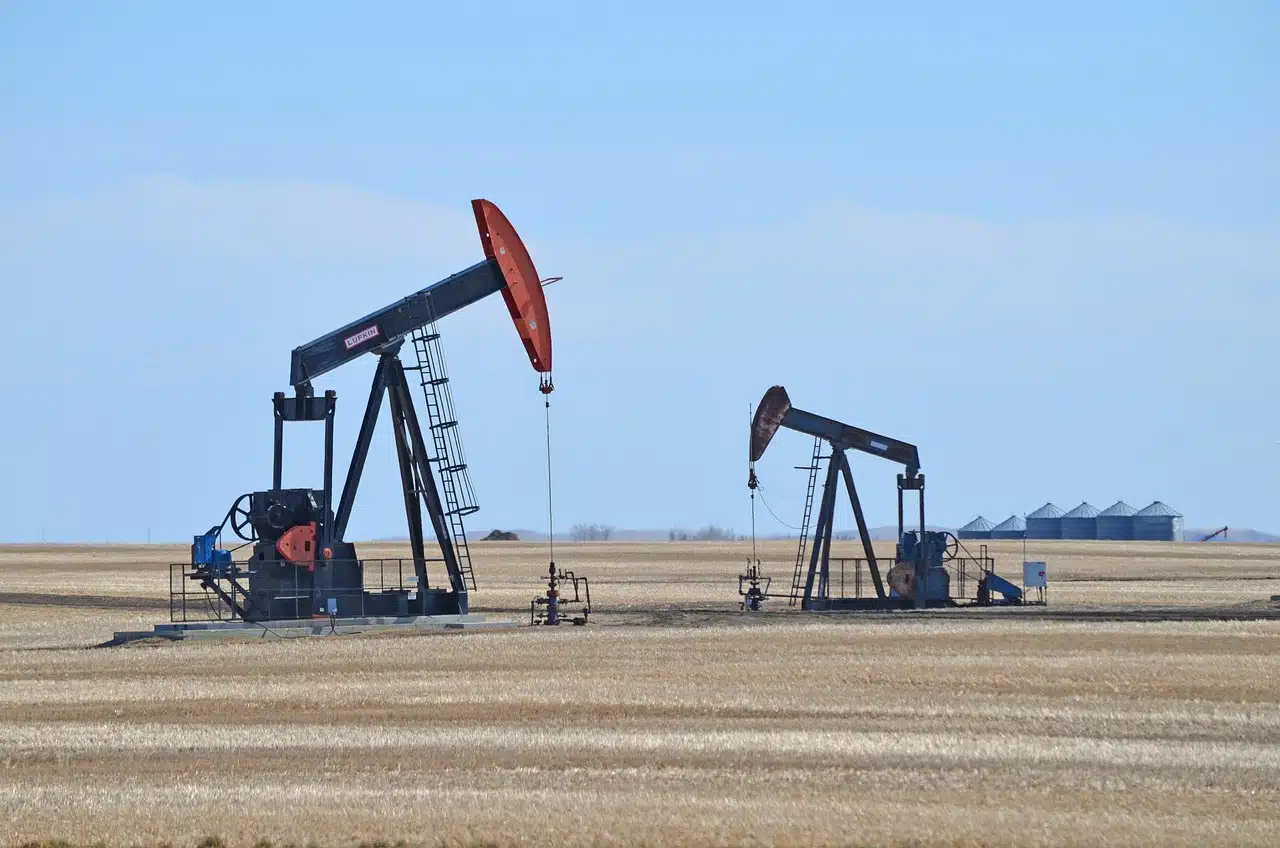
An oil well is a drilling that is carried out with the intention of extracting oil, a fossil fuel.
A fossil fuel is a natural source of energy that arises when organic matter decomposes and goes through a process that spans millions of years. The slowness with which this transformation is carried out means that these fuels are not renewable since they are consumed much faster than they are regenerated.
Therefore, due to their intensive use and their characteristics, fossil fuels can be depleted . The case is different with renewable energy sources, such as wind and sun, which are virtually inexhaustible.
Formation of a fossil fuel
The formation of a fossil fuel is a process that takes place over several centuries. The organisms that are decomposing, when left under layers of sediments, generate deposits where they little by little transform due to the increase in pressure and temperature in the underground levels.
In this way, elements emerge that stand out for their high energy content. These fossil fuels are oil , natural gas and coal .
It can be said that fossil fuels have their origin in the remains of animals and plants . Nature acts on them, transforming them into fossil fuels that humans use to generate electricity and power engines, for example.

Natural gas is a fossil fuel that can be extracted using the technique of hydraulic fracturing or fracking.
The oil
Oil is a mixture of hydrocarbons that originates from the accumulation of the remains of aquatic microorganisms at the bottom of the oceans. Like all hydrocarbons, it is a compound that contains carbon and hydrogen .
The collection of these organic remains in sediments can occur in what is called an oil trap , which is a natural geological structure from where their extraction is carried out through drilling. What humans do is, once the oil trap is detected, drill into the ground to extract the fuel , which can be located at a depth between approximately 600 and 5,000 meters.
It is important to indicate that crude oil is subjected to refining and fractional distillation to achieve a chemical transformation that allows its industrial use. Thanks to refineries , crude oil becomes useful to man.

Today's energy policy tends to encourage the use of renewable energy sources instead of fossil fuels.
Natural gas, another fossil fuel
Natural gas is another fossil fuel that contains carbon and hydrogen in the form of methane . It is common for it to be found in the same deposits that preserve oil, since it also arises from the remains of marine microorganisms.
Like oil, resource extraction is carried out through drilling and natural gas is deposited in containers through the use of pipelines. From these containers, in turn, they are distributed through gas pipelines .
For safety reasons, natural gas is subjected to an odorization process: since it is naturally odorless, methyl mercaptan is added to give it a strong odor that makes it possible to detect it in the event of leaks.
The coal
Charcoal is a mineral substance that is created from plant remains. As with oil and natural gas, the remains are buried and, as temperature and pressure increase over time, they undergo a chemical transformation.
According to its carbon content, coal can be classified in different ways ( anthracite , lignite and graphite , among others). It is extracted from mines using different methods and used for heating, generating electrical energy and other actions.
Fossil fuel reserves
Fossil fuel reserves can be depleted: as we already indicated, humans extract oil, natural gas and coal at a faster rate than nature can produce them. If overexploitation continues, sooner or later these resources will end up disappearing, causing an energy crisis that is difficult to resolve.
Coal is believed to be the most abundant fossil fuel. If exploitation continues at this rate, the reserves would last at least 200 years. In the case of oil and natural gas reserves, specialists maintain that they can be exhausted in less than 50 years.
According to the United Nations (UN) , today 80% of primary energy demand is satisfied with fossil fuels. Taking into account the risk of depletion, it is essential that fossil energy – which is non-renewable energy – be replaced by wind energy , solar energy and other renewable energy sources.
The pollution problem
It cannot be ignored that the use of fossil fuels has a great environmental impact. Combustion generates carbon dioxide (CO2) when it develops normally or carbon monoxide (CO) if it is incomplete, causing greenhouse gas emissions and thus contributing to global warming .
Although climate change is often a cause for debate, there is an international consensus about the need to promote an energy transition towards a model based on clean energy or green energy . For this reason, many countries signed the Kyoto Protocol and the Paris Agreement committing to reduce their gas emissions of this type.
In this context, fuel substitution is encouraged, replacing fossils with biofuels such as biodiesel and bioethanol since they emit less carbon dioxide compared to the others and, consequently, produce less air pollution.
Among alternative energies, nuclear energy is also usually considered. Although it can be exhausted and causes environmental problems due to radioactive waste, its advantage is that it enables a reduction in CO2 emissions.
